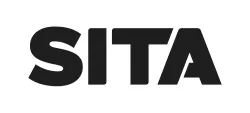
Postdoc in Combined Supercritical Thermodynamic and CFD Modelling of Solvent based Wafer Cleaning Processes
Danmarks Tekniske Universitet
Lyngby-Taarbæk, 1 stilling
Center for Energy Resources Engineering (CERE), Department of Chemical and Biochemical Engineering, Technical University of Denmark, invites applications for a 2-year postdoc position.
The design specifications for silicon chips become tighter as the requirements for higher performance and decreased size is pursued. The distance between conductors is critical. The semiconductor industry is washing silicium wafers to clean the surfaces for further processing and thereby maintaining a high yield and wafer efficiency.
There are several methods for cleaning the surfaces. One applies a technique using isopropanol (IPA) combined with supercritical CO2 washing and drying.
The wafers being treated are mid-process. This indicates that they are being matured for further processing. There is a well-established lab technique to secure efficient cleaning which sufficiently prepares the surface for further treatment.
You will be responsible for creating the knowledge base of why the combination of supercritical CO2 and IPA forms an optimal solvent for surface cleaning.
CO2 extracts IPA and impurities during the drying process. The technique is carried out at high pressure which maintains efficient cleaning modifying the chemical process parameters; a key variable is the surface tension. The wafer grid is extremely minute, if it starts leaning the production is out of specification, resulting in production efficiency loss. Surface tension has enough force to pull wafers grid lines to an extent which makes them lean. The high pressure creates beneficial conditions where surface tension is small enough to protect against leaning grids and assure a high productivity.
Particle formation on the wafer surfaces is a similar critical issue which may interfere with the production. You will be responsible for modelling particle removal to prevent further production interruption.
Purpose of the project
The aim of the project is twofold: 1. Develop a thermodynamic model which describes the phase behaviour in the binary chemical system 2. Create a computational fluid dynamics (CFD) simulation which explains the effect of surface tension and the efficiency of the cleaning process aimed at particle removal using your developed thermodynamic software interface.
Project contents
The core of the project is to develop a thermodynamic model base. You will be responsible for creating an interface which can link the calculation to complex CFD simulations. It should be valid in a relative broad range from 25 to 100 °C at 0 to 200 bars. The knowledge should be constructed using literature data on existing in-house software code.
The scientific goal is to create a CFD simulation which contains a thermodynamic software module. The simulation should be able to accurately describe mass transfer in the wafer grid structure. It should be able to explain the forces acting on the wafers from the surface tension and should be able to account for particles. Conclusions should be drawn on the controlling factors and technical perception of the cleaning plus drying process.
Relation to other projects
You will be a members of the CERE group supervised by Associate Professor Philip Fosbøl where you can draw on decades of thermodynamic experience. Many of the tools you need for this project are available.
You will further work in a CFD simulation group under the supervision of Associate Professor Ulrich Krühne in the CAPEC-Process group where you can draw on years of experience within CFD simulation.
Objectives
•Collect knowledge from literature on wafer cleaning and data for thermodynamic modelling
•Create thermodynamic equation of state parameters for IPA-CO2
•Validate several CFD engines for advanced plug-in capability
•Develop a software interface for plug-in to a CFD engine and installation in general
•Construct a mesh and model, based on an existing wafer drying setup
•Model forces related to surface tensions in the wafer grid using CFD
•Model droplet and particle formation of wafer surfaces using CFD
•Validate modelling according to real-life measurements from a collaborating company
•Write quarterly status report which describes your progress
•Create a final report outlining the findings
•Present you progress abroad
Qualifications
Candidates should have a master's degree in engineering or a similar degree with an academic level equivalent to the master's degree in engineering plus a PhD in chemical engineering. There will be a focus toward your experience within thermodynamic modelling programming and CFD even though we acknowledge that you may only have limited experience in on one of them.
Salary and appointment terms
The appointment will be based on the collective agreement with the Confederation of Professional Associations. The allowance will be agreed with the relevant union. The period of employment is 2 years with a possibility of extension for 1 year.
The workplace is DTU Lyngby Campus, Denmark.
Further information
Further information may be obtained from Associate Professor Philip L. Fosbøl, tel.: +45 4525 2868. For any administrative issue please contact Helle Raun her@kt.dtu.dk.
You can read more about DTU Chemical Engineering on <a href='javascript:openLinkWindow("http://www.kt.dtu.dk/english")' "="" data-cke-saved-href='javascript:openLinkWindow("http://www.kt.dtu.dk/english")'>http://www.kt.dtu.dk/english.
Application
Please submit your online application no later than October 31st, 2015. Applications must be submitted as one pdf file containing all materials to be given consideration. To apply, please open the link "Apply online," fill in the online application form, and attach all your materials in English in one pdf file. The file must include:
•A letter motivating the application (cover letter)
•Curriculum vitae
•Grade transcripts and BSc/MSc/PhD diploma (an official translation into English)
•Any relevant publications which you find important to the application
Applications and enclosures received after the deadline will not be considered.
All interested candidates irrespective of age, gender, disability, race, religion or ethnic background are encouraged to apply.
DTU is a technical university providing internationally leading research, education, innovation and public service. Our staff of 5,800 advance science and technology to create innovative solutions that meet the demands of society; and our 10,300 students are being educated to address the technological challenges of the future. DTU is an independent academic university collaborating globally with business, industry, government, and public agencies.

